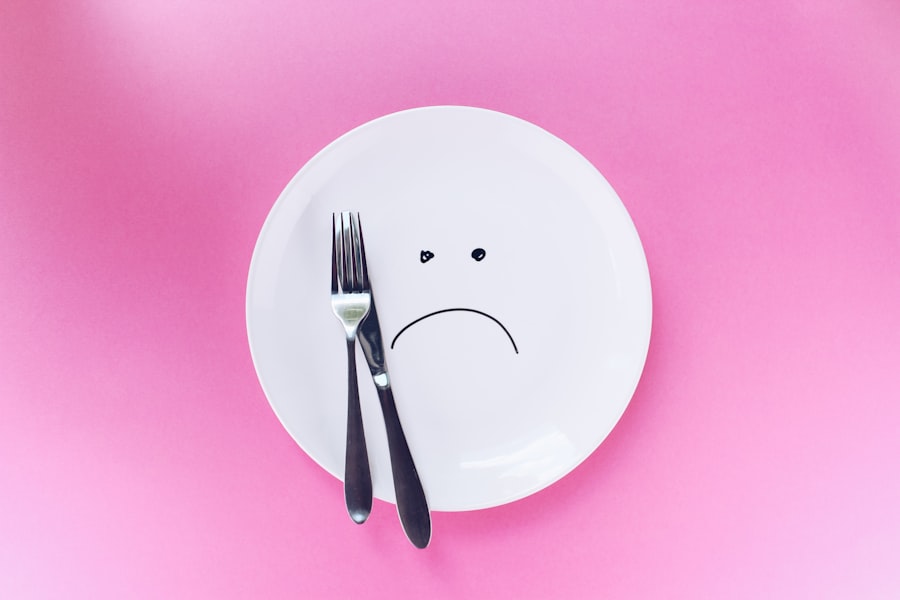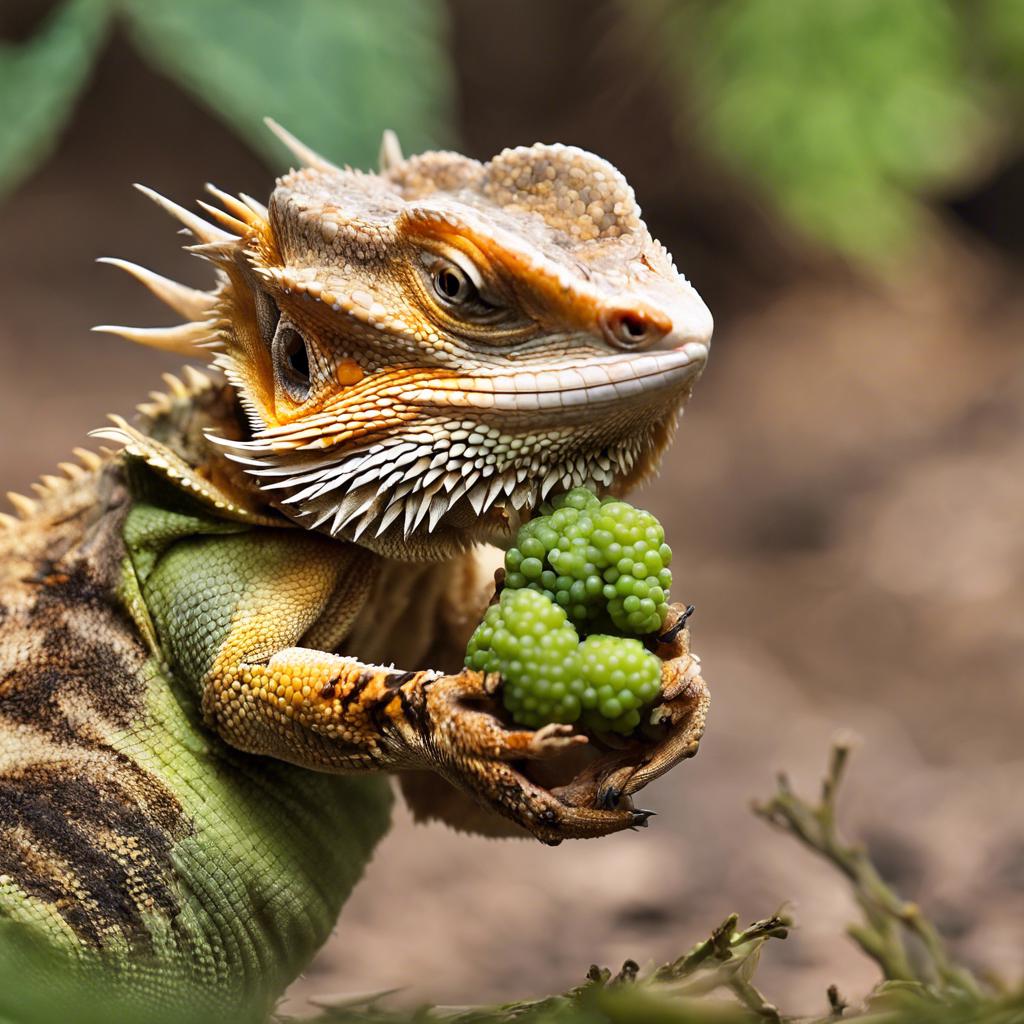Bearded dragons are popular reptile pets known for their unique appearance and docile nature. These lizards are native to Australia and have become increasingly popular as pets due to their friendly demeanor and relatively low maintenance requirements. However, it is important for bearded dragon owners to understand the nutritional needs of these reptiles in order to ensure their health and well-being.
Proper nutrition is crucial for the overall health and longevity of bearded dragons. These reptiles require a balanced diet that consists of a variety of foods to meet their nutritional needs. A well-rounded diet helps support their growth, development, and immune system function. It is important for owners to provide a diverse range of foods to ensure that their bearded dragons receive all the necessary nutrients.
Key Takeaways
- Bearded dragons are popular pets that require a balanced diet to maintain their health.
- Mulberries are a type of fruit that can be fed to bearded dragons in moderation.
- Mulberries are a good source of vitamins and minerals for bearded dragons.
- Feeding too many mulberries to bearded dragons can cause digestive issues.
- Bearded dragons should have a varied diet that includes a mix of fruits, vegetables, and insects.
Nutritional Requirements of Bearded Dragons
Bearded dragons are omnivorous, meaning they eat both plant matter and small insects. Their diet should consist of a combination of vegetables, fruits, and insects to provide a balanced mix of nutrients. The primary components of a bearded dragon's diet include leafy greens, vegetables, fruits, and protein sources such as insects.
Leafy greens such as kale, collard greens, and mustard greens are excellent sources of calcium and other essential vitamins and minerals. Vegetables like carrots, bell peppers, and squash provide additional vitamins and fiber. Fruits should be given in moderation due to their high sugar content but can be offered as occasional treats.
Protein is an important component of a bearded dragon's diet, as it helps support muscle growth and development. Insects such as crickets, mealworms, and dubia roaches are commonly fed to bearded dragons as a source of protein. It is important to gut-load these insects with nutritious foods before feeding them to the bearded dragon to ensure they provide optimal nutrition.
What are Mulberries?
Mulberries are a type of fruit that grows on mulberry trees, which are native to Asia, Europe, and North America. These fruits are small, round, and typically dark purple or black when ripe. Mulberries have a sweet and slightly tart flavor and are often used in jams, jellies, and desserts.
Mulberries are rich in vitamins and minerals, including vitamin C, vitamin K, iron, and potassium. They also contain antioxidants, which help protect the body against damage from harmful free radicals. Additionally, mulberries are a good source of dietary fiber, which aids in digestion and helps maintain a healthy weight.
The availability of mulberries can vary depending on the region. In areas where mulberry trees grow naturally or are cultivated, fresh mulberries may be readily available during the summer months. In other regions, dried mulberries or mulberry products such as jams or preserves may be more commonly found.
Can Bearded Dragons Eat Mulberries?
Yes, bearded dragons can eat mulberries. Mulberries can be a nutritious addition to a bearded dragon's diet when fed in moderation. However, it is important to understand the benefits and risks associated with feeding mulberries to these reptiles.
Mulberries offer several nutritional benefits for bearded dragons. They are a good source of vitamins and minerals, including vitamin C and potassium. These nutrients help support the immune system and overall health of the bearded dragon. Additionally, the fiber content in mulberries can aid in digestion.
However, there are also some risks associated with feeding mulberries to bearded dragons. One potential risk is the high sugar content of mulberries. While small amounts of natural sugars are generally safe for bearded dragons, excessive sugar intake can lead to obesity and other health issues. It is important to feed mulberries as an occasional treat rather than a staple food.
Benefits of Feeding Mulberries to Bearded Dragons
Feeding mulberries to bearded dragons can provide several nutritional benefits. As mentioned earlier, mulberries are a good source of vitamins and minerals, including vitamin C and potassium. These nutrients help support the immune system and overall health of the bearded dragon.
Mulberries also contain antioxidants, which help protect the body against damage from harmful free radicals. These antioxidants can help reduce inflammation and support the bearded dragon's overall well-being.
In addition to their nutritional benefits, mulberries can contribute to a balanced diet for bearded dragons. By offering a variety of fruits and vegetables, owners can ensure that their bearded dragons receive a diverse range of nutrients. This helps support their growth, development, and overall health.
Risks and Precautions of Feeding Mulberries to Bearded Dragons

While mulberries can be a nutritious addition to a bearded dragon's diet, there are some risks and precautions to consider. One potential risk is the high sugar content of mulberries. Excessive sugar intake can lead to obesity and other health issues in bearded dragons. It is important to feed mulberries as an occasional treat rather than a staple food.
Another risk is the potential for pesticide residue on fresh mulberries. If feeding fresh mulberries to a bearded dragon, it is important to thoroughly wash them to remove any potential pesticides or other contaminants. Alternatively, offering dried mulberries or mulberry products can help mitigate this risk.
It is also important to note that some bearded dragons may have individual sensitivities or allergies to certain foods, including mulberries. If introducing mulberries into a bearded dragon's diet for the first time, it is recommended to start with a small amount and monitor for any adverse reactions.
How to Prepare Mulberries for Bearded Dragons
When feeding mulberries to bearded dragons, it is important to properly prepare them to ensure they are safe and easy for the reptile to consume. Here are some tips on how to prepare mulberries for bearded dragons:
1. Wash the mulberries thoroughly to remove any potential pesticides or contaminants.
2. Remove any stems or leaves from the mulberries.
3. Cut the mulberries into small, bite-sized pieces to make them easier for the bearded dragon to eat.
4. If feeding dried mulberries, ensure they are free of any additives or preservatives.
There are different ways to serve mulberries to bearded dragons. They can be offered as a standalone treat or mixed with other fruits and vegetables. Some owners may choose to puree the mulberries and mix them with other foods to create a more varied diet.
How Often Should Bearded Dragons Eat Mulberries?
While mulberries can be a nutritious addition to a bearded dragon's diet, it is important to feed them in moderation. As mentioned earlier, mulberries have a high sugar content, which can lead to obesity and other health issues if consumed in excess.
A general guideline is to offer mulberries as an occasional treat rather than a staple food. This means feeding them once or twice a week in small quantities. It is important to monitor the bearded dragon's weight and overall health and adjust the frequency of mulberry feeding accordingly.
Other Fruits and Vegetables Suitable for Bearded Dragons
In addition to mulberries, there are several other fruits and vegetables that are safe for bearded dragons to eat. These include:
– Leafy greens such as kale, collard greens, and mustard greens
– Vegetables like carrots, bell peppers, and squash
– Fruits such as strawberries, blueberries, and apples (in moderation)
These fruits and vegetables provide a variety of vitamins, minerals, and fiber that help support the overall health of bearded dragons. It is important to offer a diverse range of foods to ensure that the bearded dragon receives all the necessary nutrients.
Bearded Dragon Care and Feeding Guidelines
Proper nutrition is crucial for the health and well-being of bearded dragons. A balanced diet that includes a variety of foods is essential to meet their nutritional needs. Mulberries can be a nutritious addition to a bearded dragon's diet when fed in moderation.
While mulberries offer several nutritional benefits, it is important to be aware of the potential risks and take precautions when feeding them to bearded dragons. It is recommended to consult with a veterinarian for specific dietary needs and to ensure the overall health of the bearded dragon.
By providing a balanced diet that includes a variety of fruits, vegetables, and protein sources, owners can help support the growth, development, and overall health of their bearded dragons. Regular monitoring of the bearded dragon's weight and overall health is important to ensure they are receiving optimal nutrition.
If you're wondering whether bearded dragons can eat mulberries, you might also be interested in learning about the potential dangers of stress for these reptiles. Stress can have serious consequences for bearded dragons, and it's important to understand how to prevent and manage it. To find out more, check out this informative article on Can Bearded Dragons Die from Stress?.
FAQs
What are mulberries?
Mulberries are a type of fruit that grow on trees in the Moraceae family. They come in different colors, including black, red, and white, and are sweet and juicy.
Can bearded dragons eat mulberries?
Yes, bearded dragons can eat mulberries. They are safe and nutritious for them to consume in moderation.
What are the nutritional benefits of mulberries for bearded dragons?
Mulberries are a good source of vitamin C, vitamin K, and fiber. They also contain antioxidants that can help boost the immune system of bearded dragons.
How should mulberries be prepared for bearded dragons?
Mulberries should be washed thoroughly before feeding them to bearded dragons. They can be served fresh or dried, but it is important to remove any stems or leaves that may be present.
Can bearded dragons eat mulberry leaves?
No, bearded dragons should not eat mulberry leaves. They contain high levels of oxalic acid, which can be harmful to bearded dragons if consumed in large quantities.
What other fruits can bearded dragons eat?
Bearded dragons can eat a variety of fruits, including apples, bananas, blueberries, grapes, and strawberries. It is important to feed them in moderation and to avoid fruits that are high in sugar or acid.

